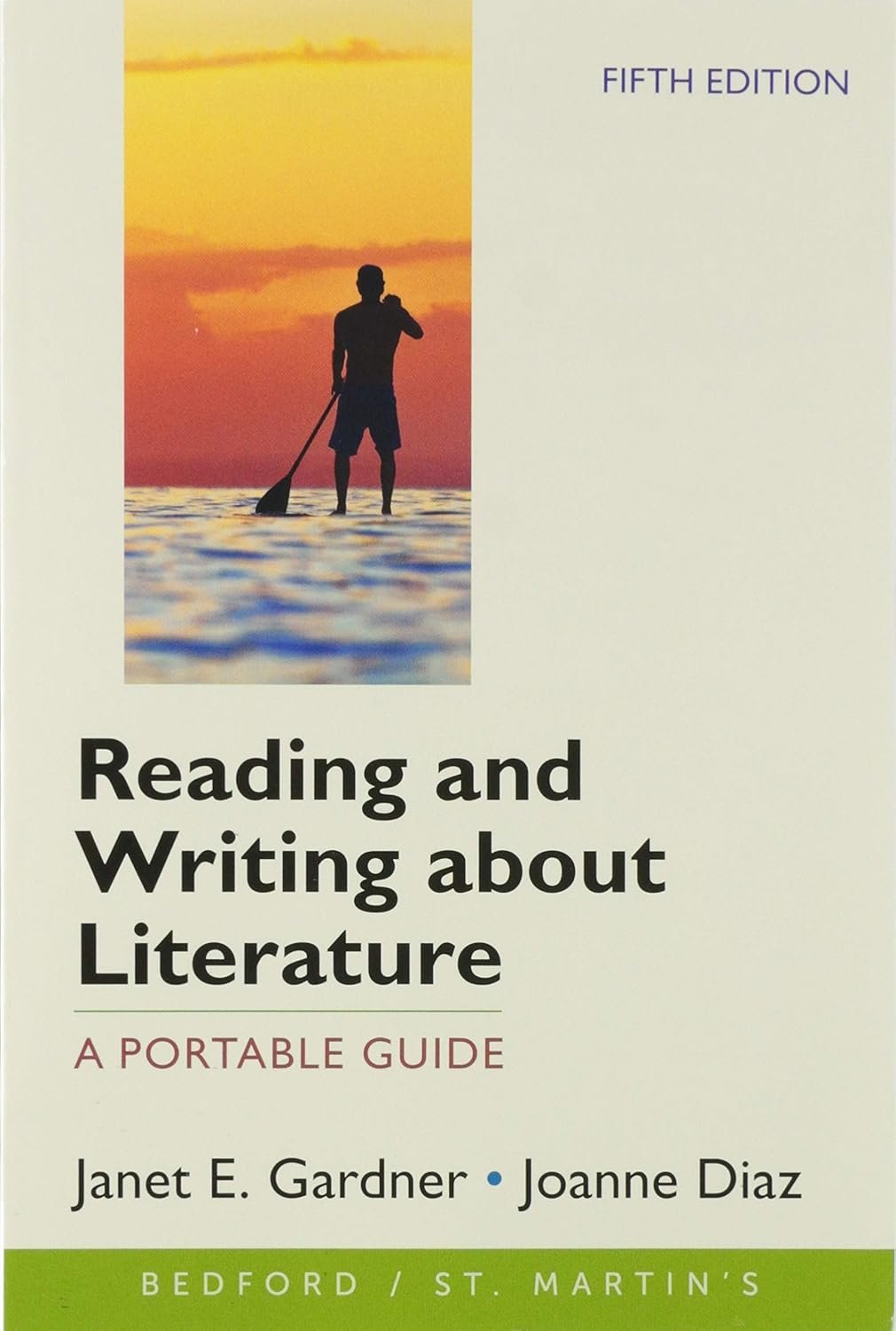
17 Aug Unlocking Literary Worlds: A Journey through “Reading and Writing about Literature: A Portable Guide”
Book Review: Reading and Writing about Literature: A Portable Guide
Sometimes a book catches your eye for the simple fact that it promises to unpack the complex beauty of literature in a way that feels accessible and engaging. That was my first impression when I stumbled upon Reading and Writing about Literature: A Portable Guide by the esteemed authors of Bedford/St. Martin’s. Even the phrase "portable guide" intrigued me; it felt like an invitation to carry the world of literary exploration right in my bag!
At 224 pages, this fifth edition is a concise gem, just the right size for a student’s backpack or a coffee shop table. It captures the essentials of reading and writing about literature in a format that feels both encouraging and insightful. The book deftly combines literary theory with practical advice, providing a comprehensive overview that demystifies the often intimidating landscape of literary studies.
One of the book’s standout features is its clarity. It shines a light on various genres and literary forms, giving readers not just the "what," but also the "why" behind literary appreciation. I especially appreciated the sections on how to analyze characters and themes. The writers highlight the importance of context, urging us to consider not just the words on the page but the socio-historical climate in which they were penned. This approach rekindled my own curiosity for texts I had glossed over in the past.
While some chapters dive deep into critical theory, I found that the writing style remains accessible. The language is straightforward, making it easy for anyone—from budding literati to seasoned scholars—to engage with the material. One quote that particularly resonated with me was, “Literature isn’t just to be read; it should be felt, explored, and most importantly, discussed.” This encapsulates the essence of the guide; it invites us to not just consume literature passively but to immerse ourselves fully in the dialogue it initiates.
I also enjoyed the practical exercises peppered throughout the text. These hands-on activities are not just tick boxes for grades; they encourage genuine engagement with the material. As someone who has often struggled to articulate my thoughts in essays, I found the tips on crafting arguments particularly helpful. The guide equips you with the skills needed to bring your own voice into literary discussions—something that’s invaluable for developing your unique perspective.
In terms of potential shortcomings, I can understand some critics mentioning that the poetry sections may not resonate with everyone, especially if poetry isn’t a preferred genre. However, even if you find yourself less enamored by the poetic analysis, I believe it can serve as a doorway to appreciating the nuances of aesthetics in literature as a whole.
So who would benefit from Reading and Writing about Literature? It’s perfect for students, educators, or anyone wishing to revisit the world of literature. Whether you’re in a classroom or simply seeking to cultivate a personal literary practice, this guide can serve as an essential companion.
In conclusion, this book not only enriched my understanding of literary analysis but also reawakened my passion for reading. If you’re on a quest for a concise yet profound exploration into literature, I wholeheartedly recommend giving this portable guide a spot on your shelf—or in your bag!
You can find Reading and Writing about Literature: A Portable Guide here >>









